@home diagnostic
With the advent of digital health technologies, the previous diagnostic processes are increasingly being turned upside down: On the one hand, AI with its algorithms is ensuring that pattern recognition is taking an ever greater share of diagnostic methods, and on the other hand, new (analysis) technologies are ensuring that it is no longer necessary to go to the hospital for many tests.
RECENT DEVELOPMENTS
The „health world“ has been developing faster – perceived – since 2020. Covid-19 testing, for example, has become a learned routine for everyone. We are now all used to testing ourselves, even if we have no symptoms of the disease. The pandemic has „enabled“ entire populations for digital channels – from making testing appointments to using Covid-19 certificate apps.
The key, digital trends in diagnostics have remained unchanged for several years:
Point of care testing or @-home diagnostic solutions
Predictive and personal genetics
Real-time diagnostics
As described above, various types of covid tests have been developed for home use, some of which can send information to, for example, a doctor via the patient’s smartphone using an app or the device itself.
New technological breakthroughs in blood and saliva diagnostics continue to change the status quo. Researchers in Sweden have printed a credit-card-sized piece of card stock that can be used to analyze blood and saliva samples.
Technological advancements are creating personal „fingerprints.“ This can be used to predict diseases such as cancer, cardiovascular problems, and type 1 diabetes. Next-generation sequencing will enable us to understand each human genome and how it affects individual patients. Conversely, the unfortunate reality is that a predictive genetic test will only provide information about a future disease that may – or may not – develop!
With the proliferation of wearable devices, it is possible to collect real-time data from patients. Wearables can be watches, clothing, bandages, glasses, contact lenses, and rings that conveniently attach to the body. But the possibilities go even further: implantable and ingestible devices or built-into items we all use every day, such as the toilet.
IMPLICATIONS FOR THE HEALTH INDUSTRY
If we look into the future, we could imagine a complex artificial intelligence-based system fed by data from a multitude of sensors located on or in the body. The sensors provide real-time data from urine, saliva, blood, or other bodily fluids, and the AI, with its algorithm-based pattern recognition, provides an unambiguous diagnosis, including a recommendation for the best therapy. People will thus finally „own“ their health, as prevention and treatment become personalized.
As described earlier, modern medicine often relies on body fluids for (medical) diagnosis: Blood, mucus, feces, saliva, semen, sweat, tears, urine and even earwax contain valuable information about a person’s health status. Our focus and examples are – also due to the existing know-how in blood diagnostics.
After it became known that the technology of Theranos was not revolutionary at all and the meteoric rise of Elisabeth Holmes was followed by a deep fall, many felt confirmed who always knew anyway that „such a thing“ would not work.
But is it really?
In any case, the funding numbers point in a clear direction – biotech startups raised $7.9 billion in 2021, a record amount – and the pandemic has accelerated the shift to remote diagnostics and AI-driven healthcare solutions. For this issue, we’ve done an overview of European blood testing startups:
MICROTRENDS
BLOOM DIAGNOSTICS
Bloom Diagnostics is an Austrian – Swiss blood testing and diagnostics startup, founded in 2018. It raised $10m in November 2021, taking its total funding to $30m.
Bloom in no way sees itself as a competitor to the big labs, rather they see an opportunity to add an additional, technological layer of care to support an overburdened system. The Bloom system, allows individuals to test for specific health markers and understand the results with actionable information. Bloom sees itself as integrated software, hardware, biotechnology, and medical data company.
It analyzes aggregated, anonymized health data and generates population-wide health data in its cloud solution called Bloom Analytics. Bloom envisions a much more integrated healthcare system that will ultimately create tremendous value for society.

REVOLAB HEALTH
Founded in 2020, Revolab developed a platform to keep track of users‘ overall physical well-being via a home blood test kit. The Lithuanian startup raised €300k in its seed round in June 2021.
Revolab, a winner of the 2020 EIT Digital Venture Program came in a record time of one year from inception to closing a seed round, signing €100K of pre-orders and achieving CE certification for its products, enabling sales across Europe.
Following simple step-by-step instructions, users collect a finger-prick blood sample and ship it back to Revolab. The results are available within 24 hours on the app. More than 30 different blood work tests are currently available such as complete blood count (CBC), glucose level, or thyroid panels. Special blood work tests, such as for vegans and vegetarians, are also available, which check for missing key nutrients.

THRIVA
The London-based home blood test startup was founded in 2015, and raised £4m in its Series A in May 2020, taking its total funding to $15.1m.
Thriva is the UK’s most convenient, at-home finger prick blood test. All tests are analyzed by partner laboratories, the results are reviewed by a GP, and you receive the results in the Thriva dashboard with commentary on the results along with any areas that might require some improvement.
Thriva offers subscription-based blood tests within the UK costing an average of $90. Users can also upload past test results to receive insights on each lab marker. Their testing services are only available in the UK. The company maintains that they are not a diagnostic service and do not aim to replace doctors.

1DROP DIAGNOSTICS
1Drop is a medical diagnostics and life science company based in Switzerland. It last raised in November 2018 — picking up $4.3m in a Series A — and is currently raising its next round of financing, with plans to close later this year.
1DROP’s goal is to improve patient lives by enabling personalized healthcare through non-invasive diagnostic tests providing actionable health information that is accessible to everyone at any time. 1DROP facilitates the early detection, prevention, and management of disease and empowers people to live better lives. 1DROP’s innovative diagnostic solutions for multiplexed assays of proteins, nucleic acids, and peptides serve as tools for the development of new therapies and drugs, disease research, and clinical diagnostic tests. The company is based in Neuchatel, Switzerland, and Boston, United States, and is supported by some of the most highly regarded experts in the field of biosensors.

NIGHTINGALE HEALTH
Nightingale is a blood testing company based in Helsinki. Founded in 2013, the company was listed on Nasdaq First North Growth Market Finland in March 2021. Nightingale raised $124m in the IPO — taking its total funding to $169m.
Nightingale Health developed a revolutionary blood analysis technology that reveals unique molecular insights into a person. Specifically, the company uses high-frequency magnets to make molecules within a blood sample resonate, measures the results, and analyzes the data with proprietary algorithms to capture large amounts of biological data. Using this unprecedented visibility, the company predicts the future risk of a person developing chronic diseases, enabling people to take proactive measures to prevent their onset.
Teemo Suna (CEO) says: “Our goal is to bring truly personalized, preventative healthcare to the entire world’s population, which is nearing eight billion people. We are taking on this mission with our recently announced ‘My Nightingale’ health solution.

SOURCES
INFORMATION
PICTURES
Main Picture: Getty Images
Microtrend 1: bloomdiagnostics.com
Microtrend 2: naujasis-knygnesys.lt
Microtrend 3: images.prismic.io
Microtrend 4: startupticker.ch
Microtrend 5: mb.cision.com

